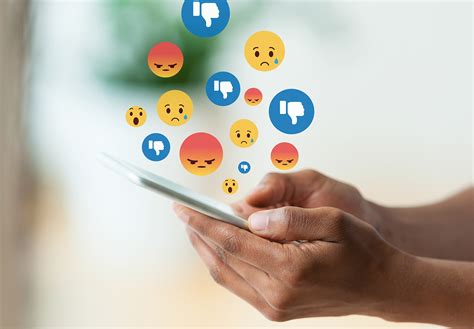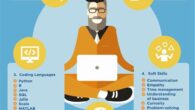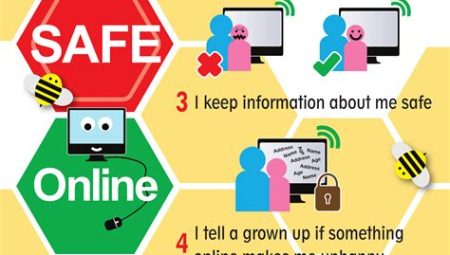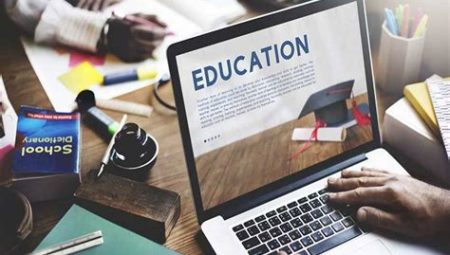In today’s digital age, social media has become a prevalent part of our daily lives. While it offers countless opportunities for connection and self-expression, it also comes with potential risks and dangers that can affect our personal and psychological well-being. In this blog post, we will delve into the dark side of social media use and explore the various threats and challenges that come with navigating the online landscape. From understanding the dangers of social media to identifying potential risks and threats, we will discuss practical tips and strategies for protecting your personal information and securing your social media accounts. Additionally, we will address the signs of online harassment and bullying, the importance of managing your digital reputation and privacy, and ways to prevent identity theft, phishing scams, and online fraud. We will also touch upon the psychological impacts of social media and the importance of establishing healthy habits for online use. Join us as we embark on this journey to protect ourselves in the digital realm.
Table of Contents
Understanding the dangers of social media
Social media has become an integral part of our daily lives, allowing us to connect with friends and family, share our thoughts and experiences, and stay updated with the latest news and trends. However, along with the numerous benefits, there are also dangers associated with social media that are often overlooked.
One of the major risks of social media is the potential exposure to online harassment and bullying. With the anonymity that social media provides, individuals may engage in cyberbullying, spreading hate speech, or threatening behavior, which can have serious psychological and emotional impacts on the victims.
Another threat of social media is the loss of privacy and personal information. Often, people willingly share personal details, locations, and activities on social media platforms without realizing the potential consequences, such as identity theft, fraud, or stalking.
Moreover, the constant usage of social media has been linked to psychological impacts such as increased anxiety, depression, and low self-esteem, as individuals compare their lives to others’ carefully curated online personas. It is crucial to educate ourselves about the risks of social media and take proactive measures to ensure our online safety and well-being.
Identifying potential risks and threats
When it comes to using the internet and social media, it’s important to be aware of the potential risks and threats that exist in this digital world. One of the most common risks is cyberbullying, which can include harassment, spreading rumors or threats, and creating fake profiles to mock or impersonate someone. Additionally, online predators may use social media platforms to target and exploit vulnerable individuals, especially children and teenagers.
Another risk to be mindful of is identity theft, which can occur through phishing scams, hacking, or the misuse of personal information shared online. Phishing scams often involve fraudulent emails or websites that trick individuals into divulging sensitive information such as passwords, credit card numbers, or social security numbers.
Privacy breaches are also a major concern, as individuals and businesses can fall victim to data breaches that compromise their personal and sensitive information. It’s important to be cautious about the type of information shared on social media and to regularly review privacy settings to ensure that personal information is protected from unauthorized access.
Lastly, the threat of online fraud and scams should not be overlooked. From pyramid schemes and fraudulent investment opportunities to deceptive advertising and fake products, the internet is rife with scams that can deceive and defraud unsuspecting individuals. By staying informed and vigilant, one can better identify and avoid these potential risks and threats.
Protecting your personal information online
In today’s digital age, the protection of personal information online has become more important than ever. With the increasing number of data breaches and cyber attacks, it is crucial for individuals to take proactive measures to safeguard their personal information from falling into the wrong hands.
One of the most effective ways to protect personal information online is to use strong, unique passwords for each of your accounts. Avoid using easily guessable passwords such as 123456 or password, and consider using a password manager to keep track of all your different passwords.
Another essential step in protecting personal information online is to enable two-factor authentication wherever possible. This provides an extra layer of security by requiring a second form of verification, such as a code sent to your mobile device, in addition to your password.
Furthermore, individuals should be cautious about sharing personal information on social media and other online platforms. Avoid posting sensitive details such as your home address, phone number, or full birth date, as this information can be exploited by identity thieves and cyber criminals.
Securing your social media accounts
Securing your social media accounts is essential in today’s digital age, where cyber threats and attacks are on the rise. It is crucial to take proactive measures to protect your personal information and maintain the privacy of your online presence. One of the first steps in securing your social media accounts is to use strong and unique passwords for each platform. Avoid using easily guessable combinations and ensure that your passwords are a mix of letters, numbers, and special characters.
Furthermore, enable two-factor authentication whenever possible to add an extra layer of security. This feature requires a second form of verification, such as a code sent to your phone or email, in addition to your password, making it more difficult for unauthorized users to access your accounts. It is also important to regularly update your privacy settings on social media platforms to control who can see your posts and personal information.
In addition, be cautious of the third-party applications that you grant access to your social media accounts. These apps may have access to your personal data, so it is essential to review and remove any unnecessary permissions. Finally, be mindful of phishing scams and suspicious links that could compromise the security of your accounts. Avoid clicking on unknown links or providing personal information to unverified sources.
By implementing these security measures, you can minimize the risk of unauthorized access and protect your social media accounts from potential threats and breaches.
Recognizing signs of online harassment and bullying
Online harassment and bullying are serious issues that can have a significant impact on individuals’ mental and emotional well-being.
It’s important to recognize the signs of online harassment and bullying so that you can take steps to address and prevent these harmful behaviors.
Some signs of online harassment and bullying include receiving threatening or abusive messages, having rumors spread about you online, or being excluded from online social groups.
If you experience any of these signs, it’s important to reach out for support and take steps to protect yourself from further harm.
Managing your digital reputation and privacy
In today’s digital age, it’s more important than ever to manage your digital reputation and privacy to protect yourself from potential threats and risks. With the increasing use of social media and online platforms, your personal information is more vulnerable than ever, making it crucial to take proactive steps to safeguard your digital identity.
One way to manage your digital reputation and privacy is by being mindful of the information you share online. Avoid oversharing personal details, such as your home address, phone number, or financial information, as this can make you an easy target for identity theft and online scams.
Additionally, regularly auditing your social media accounts and adjusting privacy settings can help you secure your personal information online. Restricting access to your posts, photos, and personal details to only your trusted contacts can minimize the risk of your information falling into the wrong hands.
Furthermore, monitoring your digital footprint and regularly googling yourself can help you protect your digital reputation. By being proactive in maintaining a positive online presence, you can mitigate the impact of any negative information that may be circulating about you on the internet.
Preventing identity theft and phishing scams
Identity theft and phishing scams are becoming increasingly common in today’s digital age, posing a serious threat to individuals’ personal information and financial security. It’s important to be aware of the tactics used by cybercriminals and take proactive measures to safeguard against these fraudulent activities.
One of the most effective ways to prevent identity theft and phishing scams is to be cautious when sharing personal information online. This includes being wary of unsolicited emails or messages requesting sensitive data such as passwords, social security numbers, or credit card details. It’s crucial to verify the legitimacy of the source before providing any personal information, especially if the request seems suspicious.
Furthermore, utilizing strong, unique passwords for different online accounts can significantly reduce the risk of falling victim to identity theft. In addition, enabling two-factor authentication adds an extra layer of security to your accounts, making it more challenging for cybercriminals to gain unauthorized access.
Education and awareness are also key in preventing identity theft and phishing scams. By staying informed about the latest cybersecurity threats and best practices, individuals can better protect themselves and their sensitive information from malicious intent.
Educating yourself about online scams and fraud
When it comes to online scams and fraud, it’s always better to be safe than sorry. With the increasing number of internet users, the risk of falling victim to online scams and fraud has also risen. Educating yourself about the various types of scams and fraud that exist online is crucial in protecting your personal and financial information.
One of the most common types of online scams is phishing, where cybercriminals attempt to obtain sensitive information such as usernames, passwords, and credit card details by disguising themselves as a trustworthy entity in an electronic communication. It’s important to be cautious when receiving unsolicited emails or messages, and to never click on suspicious links or provide personal information without verifying the source.
Another prevalent form of online fraud is identity theft, which occurs when a person’s personal information is stolen and used without their consent to commit fraud or other crimes. This can have devastating consequences for the victim, both financially and emotionally. By being aware of the signs of identity theft and taking measures to safeguard your personal information, you can reduce the risk of becoming a victim.
Staying informed about the latest online scams and fraud through reliable sources and taking the necessary precautions to protect yourself is essential in the digital age. By educating yourself and implementing effective security measures, you can minimize the chances of falling prey to online scams and fraud.
Exploring the psychological impacts of social media
With the ever-increasing presence of social media in our lives, it is important to understand the psychological impacts it can have on individuals. Social media platforms have become an integral part of modern life, allowing people to connect, share, and communicate in ways that were once unimaginable. However, the constant use of social media has been linked to various psychological effects, ranging from anxiety and depression to low self-esteem and addiction.
One of the most significant psychological impacts of social media is the effect it has on mental health. Research has shown that excessive use of social media can contribute to feelings of isolation and loneliness, as well as lead to comparative behavior as individuals constantly compare their lives to those of others on social media, often leading to feelings of inadequacy.
In addition, social media has also been associated with an increase in cyberbullying and online harassment, further exacerbating the negative psychological effects on individuals, particularly teenagers and young adults. The constant exposure to the curated and often idealized lives of others on social media can create a distorted view of reality, leading to feelings of inadequacy and anxiety.
It is important for individuals to recognize the potential psychological impacts of social media and take steps to mitigate these effects. This can include limiting screen time, engaging in activities that promote mental well-being, and seeking support from friends, family, or mental health professionals when needed. By being aware of the psychological impacts of social media, individuals can take proactive steps to safeguard their mental health and well-being in an increasingly digital world.
Establishing healthy habits for social media use
With the growing popularity of social media, it’s important to establish healthy habits for its use to maintain mental and emotional well-being. Many people spend countless hours on social media platforms, which can lead to negative impacts on their mental health. Establishing healthy habits for social media use is crucial to maintaining a balanced and positive relationship with these platforms. This includes setting boundaries for usage, being mindful of the content consumed, and practicing digital detoxes.
One important healthy habit for social media use is setting boundaries for when and how long to use these platforms. It’s easy to lose track of time while scrolling through endless feeds, so establishing a designated time for social media can help prevent excessive use. Additionally, taking breaks from social media, especially during important tasks or events, can promote better focus and reduce distractions.
Being mindful of the content consumed on social media is another healthy habit to adopt. It’s essential to curate feeds that promote positivity and mental well-being. Unfollowing accounts that consistently post negative or triggering content can help create a more uplifting social media experience. Additionally, being aware of the potential impact of comparison and FOMO (fear of missing out) that social media can induce is crucial to maintaining a healthy mindset.
Lastly, practicing digital detoxes is beneficial for establishing healthy habits for social media use. Taking breaks from social media, whether it’s for a few hours or a few days, can help reduce stress and improve overall mental health. It allows individuals to reconnect with the present moment and focus on real-life interactions, ultimately creating a healthier balance between online and offline activities.






